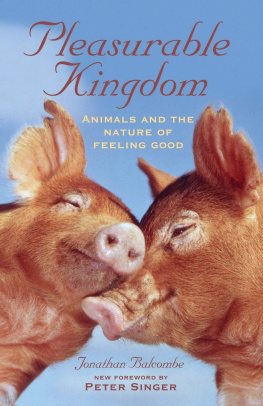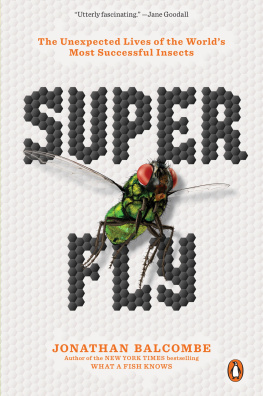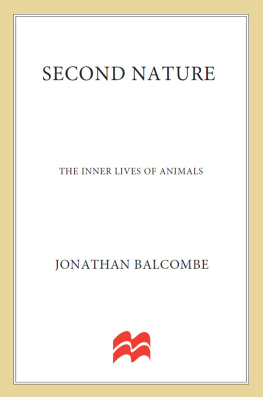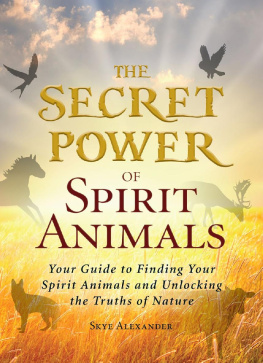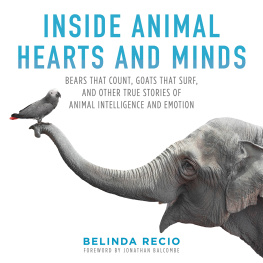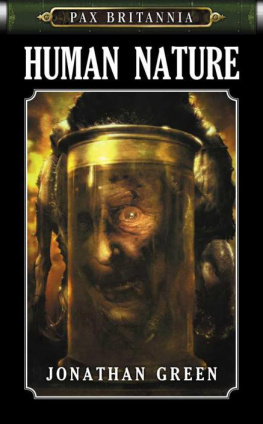Jonathan Balcombe - Pleasurable Kingdom: Animals and the Nature of Feeling Good
Here you can read online Jonathan Balcombe - Pleasurable Kingdom: Animals and the Nature of Feeling Good full text of the book (entire story) in english for free. Download pdf and epub, get meaning, cover and reviews about this ebook. year: 2006, publisher: St. Martin’s Press, genre: Romance novel. Description of the work, (preface) as well as reviews are available. Best literature library LitArk.com created for fans of good reading and offers a wide selection of genres:
Romance novel
Science fiction
Adventure
Detective
Science
History
Home and family
Prose
Art
Politics
Computer
Non-fiction
Religion
Business
Children
Humor
Choose a favorite category and find really read worthwhile books. Enjoy immersion in the world of imagination, feel the emotions of the characters or learn something new for yourself, make an fascinating discovery.
- Book:Pleasurable Kingdom: Animals and the Nature of Feeling Good
- Author:
- Publisher:St. Martin’s Press
- Genre:
- Year:2006
- Rating:3 / 5
- Favourites:Add to favourites
- Your mark:
- 60
- 1
- 2
- 3
- 4
- 5
Pleasurable Kingdom: Animals and the Nature of Feeling Good: summary, description and annotation
We offer to read an annotation, description, summary or preface (depends on what the author of the book "Pleasurable Kingdom: Animals and the Nature of Feeling Good" wrote himself). If you haven't found the necessary information about the book — write in the comments, we will try to find it.
Pleasurable Kingdom: Animals and the Nature of Feeling Good — read online for free the complete book (whole text) full work
Below is the text of the book, divided by pages. System saving the place of the last page read, allows you to conveniently read the book "Pleasurable Kingdom: Animals and the Nature of Feeling Good" online for free, without having to search again every time where you left off. Put a bookmark, and you can go to the page where you finished reading at any time.
Font size:
Interval:
Bookmark:
Animals and the nature of feeling good
Jonathan Balcombe

The author and publisher have provided this e-book to you for your personal use only. You may not make this e-book publicly available in any way. Copyright infringement is against the law. If you believe the copy of this e-book you are reading infringes on the authors copyright, please notify the publisher at: us.macmillanusa.com/piracy.
to Maureen and Gerry
My agent, Sheila Ableman, was a tireless and loyal advocate from the start. Sara Abdulla was incredibly responsive and attentive for an editor with many projects to juggle.
This project benefited from so many in so many ways. I cannot thank them all, but I do especially want to thank the following: Marc Bekoff, Jaak Panksepp, Martin Stephens, Ken Shapiro, Gordon Burghardt, Russ Benford, Tom Regan, Mary Midgley, Michel Cabanac, Martin Harvey, Lorin Lindner, Masako Miyaji, Carolee Caffrey, Nathan Nobis, Manuel Marin, Nellie Tsipoura, Alan Sieradzki, Peter Marsden, Penny Patterson, Chris Sherwin, Jim Ackerman, David DeGrazia, Christi Richter Henson, Beth Barron, Stan Moore, Liz Day, Joyanne Hamilton, Alfred Rider, Sylvia Hope, Jo-Ann Jennier, Bob Falk, Ken Heyman, Walter Ratzat, Patti Finch, Kathy Gerbasi, Emily Patterson-Kane, Daniela Sharma, Rick Bogle, Helena Pedersen, Lynne Sneddon, Mary Thurston, Brock Fenton, Linda Case, Ellen Marsden, Reg Clark, and Joyce Poole. I thank Clark Wolf for the idea that the study of animal pleasure might be a new branch of ethology what I term Hedonic Ethology (other suggestions welcome).
I am indebted to all the animals who taught me that quiet, patient observation rarely goes unrewarded. Finally, I thank Marilyn and Emily for being supportive as I, and they, navigated the pleasures and the inevitable pains.
Extracts from the following works are reproduced with the kind permission of their publishers:
Adams, R. Watership Down. Simon & Schuster.
Bagemihl, B. Biological Exuberance. Profile Books.
Burger, J. The Parrot Who Owns Me. Random House.
Burghardt, G. The Genesis of Animal Play. MIT Press.
Dawkins, R. River Out of Eden. Orion Books; Basic Books.
Dennett, D. Kinds of Minds. Perseus Group.
Goodall, J. and Bekoff, M. The Ten Trusts. Harper San Francisco.
Griffin, D. Animal Minds. University of Chicago Press.
Heinrich, B. Mind of the Raven. HarperCollins.
Linden, E. The Octopus and the Orangutan. Penguin USA.
Macphail, E. The Evolution of Consciousness. Oxford University Press.
Masson, J. and McCarthy S. When Elephants Weep. Random House.
Pollan, M. The Botany of Desire. Random House.
Steinhart, P. The Company of Wolves. Random House.
Tomkies, M. Out of the Wild. Random House.
Uhlenbroek, C. Talking with Animals. Hodder & Stoughton.
Wood Krutch, J. The Great Chain of Life. Morrow/HarperCollins.
Wright, R. The Moral Animal. Random House/Pantheon.
Young, R. The Secret Life of Cows. Farming Books and Videos.
de Waal, F. Chimpanzee Politics. Jonathan Cape.
de Waal, F. Good Natured. Harvard University Press.
Every effort has been made to trace the copyright holders of material reproduced herein; if any have been inadvertently overlooked the publishers will be pleased to make the necessary arrangement at the first opportunity.
reproduced with kind permission of Martin Harvey.
reproduced with kind permission of Jaak Panksepp and Oxford University Press.
reproduced with kind permission of Bat Conservation International.
reproduced with kind permission of Lorin Lindner.
Standing on the second floor balcony of a rustic hotel in Virginia during a spring birdwatching trip, I watched two fish crows land on an old wooden billboard protruding incongruously from a marshy landscape. I swiveled my telescope and focused on them. My perch was above theirs, and the angled morning sunlight was ideal for spying on these two black beauties.
First they pulled off some aerial antics, alternately launching and landing, sometimes trading places, each bird's attention riveted on the other. Then one bird sidled up to the other, leaned over and pointed her beak down, exposing her nape. The other bird gently swept his bill through her nape feathers as though searching for parasites. After a few seconds, the two edged apart again. Shortly, the one bird sidled back towards the other, and the grooming resumed. This process was repeated about 30 times over the next ten minutes. The groomed bird especially appeared to like it.
Male and female crows look the same to us, so I don't actually know whether these two were a mated pair or not. But whatever their sexes, their interaction appeared to embody the pleasure of contact.
So, why write a book on animal pleasure? Isn't it obvious that dogs love to chase balls and cats adore basking in the sun? Most wouldn't question that beloved companion animals enjoy these and other activities. But what of other animals we are less familiar with? What about warthogs, walruses, starlings, sparrows, iguanas, tree frogs, moray eels and puffer fish? Do they also experience pleasure? The answer I propose is undoubtedly yes, and the primary aim of this book is to present evidence, from both scientific study and anecdote, that the animal kingdom is rich with pleasure.
Demonstrating irrefutably that an animal is enjoying herself is not just difficult, it is practically impossible. While a dolphin or a dormouse may be behaving as if feeling joy, excitement, delight, or ecstasy, we can't be certain that she actually feels that way. And because we cannot know for certain how another animal feels, we have neglected, and in some cases censured, the study of emotions and feelings including pleasure in animals.
Happily, this situation is now changing. The academic study of animal minds and emotions is blossoming. Compassionate inquiry and reason are beginning to triumph over the narrow doctrine that has viewed animals as closed books. Sadly, the residue of past dogma remains. While the study of animal behavior formally called 'ethology' has grown into an important discipline, ethologists rarely entertain the idea of pleasure in animals. The word 'pleasure' appears rarely in the indexes of textbooks on animal behavior. Scientists openly discuss animal pain, which lies opposite pleasure on the spectrum of sensory experiences, and there are many books and journals dedicated to its study. Not so pleasure.
It is a stunning symptom of this scientific muteness that twenty-three centuries after Aristotle and 120 years post-Darwin there has not been one book dedicated to animal pleasure. This hole needs filling, and fast. As pleasure-seekers ourselves, we know that pleasure is not just the absence of pain, but a spectrum of positive feelings, felt in many ways and intensities. There are physical pleasures, like taste or touch, and there are psychological pleasures, such as music and art even excitement, pride and relief.
Animal pleasure is an open frontier. I hope this book will prod researchers, ethicists, legislators, farmers, zookeepers, pet-owners and the rest of us to look for animal pleasure and to study it. History shows that we are much more likely to notice something when we look for it. If we think animals only have neutral or negative experiences (or none at all), then we are prone to overlook their positive moments. Researching and writing these pages has turned me on and tuned me in to the pleasures of animal existence. It is as though a curtain has been drawn open, allowing me to see nature in a new light. I now notice details that I missed before, even though they were there all along. I hope others will also become more attuned to the nuances of those 'other nations, caught with ourselves in the net of life and time, fellow prisoners of the splendor and travail of the earth,' to which writer and environmentalist Henry Beston so eloquently referred. May the world be richer for it.
Font size:
Interval:
Bookmark:
Similar books «Pleasurable Kingdom: Animals and the Nature of Feeling Good»
Look at similar books to Pleasurable Kingdom: Animals and the Nature of Feeling Good. We have selected literature similar in name and meaning in the hope of providing readers with more options to find new, interesting, not yet read works.
Discussion, reviews of the book Pleasurable Kingdom: Animals and the Nature of Feeling Good and just readers' own opinions. Leave your comments, write what you think about the work, its meaning or the main characters. Specify what exactly you liked and what you didn't like, and why you think so.

